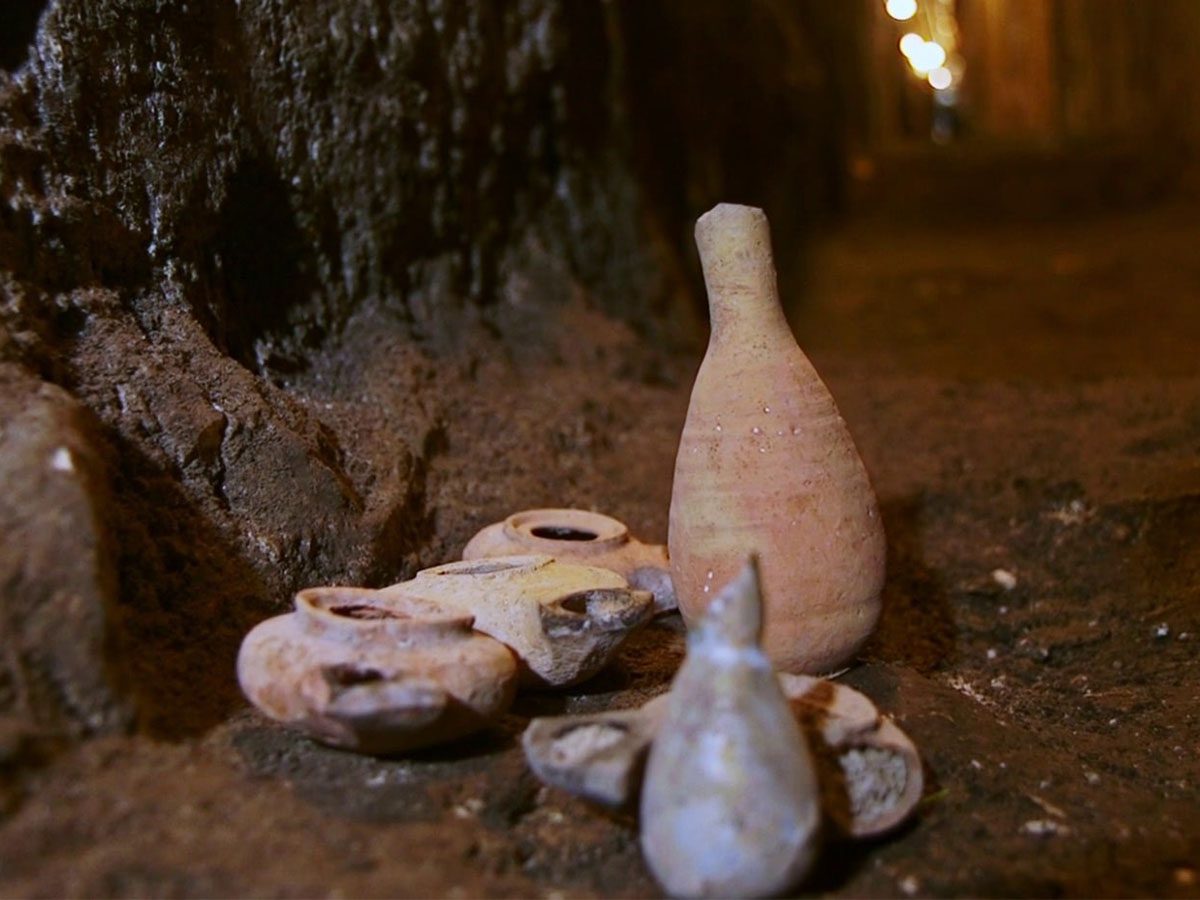
An excavation of a drainage channel by archaeologists in Jerusalem has led to the uncovering of 2,000-year-old relics dating from the days of Christ. The excavation was being overseen by the Israel Authorities Antiquity (IAA), with the channel running underneath the length of the City of David. The archaeologists uncovered a number of dishes and glass vials, dating them to be around 2,000 years old, or the days of Jesus. IAA executive director, Ayala Zilberstein, said that such seemingly small discoveries can teach a lot about ancient life. “Small finds tell us a big story, from Jerusalem’s heyday of prosperity and splendor when its streets bustled with life, until the city’s ebbing moments during the rebellion against the Romans and its total abandonment following the Temple and city’s destruction.”
For example, scientists uncovered pottery lamps in the topmost soil that indicated signs of fire that once burned within them dating towards the end of the period of the Second Temple, when Roman soldiers destroyed it in 70 AD. A Roman sword found in the area previously may indicate the drainage ditch was used by rebels to hide from Roman soldiers. A layer of silt also filled the ditch to nearly halfway, showing neglect that may align with the final days of the Temple.
Digging deeper, archaeologists found relics dating to earlier, more peaceful days of the city. “Through this large variety of pots and dishes that accumulated in the drainage channel, we encounter nearly the complete tableware set of Jerusalem’s residents. In contrast to the limited set of vessels generally found when excavating a single household kitchen, the channel assemblage is drawn from many houses and from different streets in town, thus presenting us with examples of almost all wares the city’s merchants had to offer,” said Zilberstein. Relics found deeper revealed the city’s wealth, with a team led by Nissim Mizrahi uncovering whole vessels, such as vials for perfume and expensive oils and a delicate glass vial.
Dirt was sent to the Sifting Project in Emek Zurim National Park, where even smaller items such as beads and coins were found. Eli Escusido, director of the IAA, called these discoveries “important.” “In these days, when the word ‘destruction’ takes on more relevance than usual, there is great value and it is important to look back into our past, to remember where we came from and what we went through, to connect with our history, and thus gain a broader view of our life here in Israel.”


